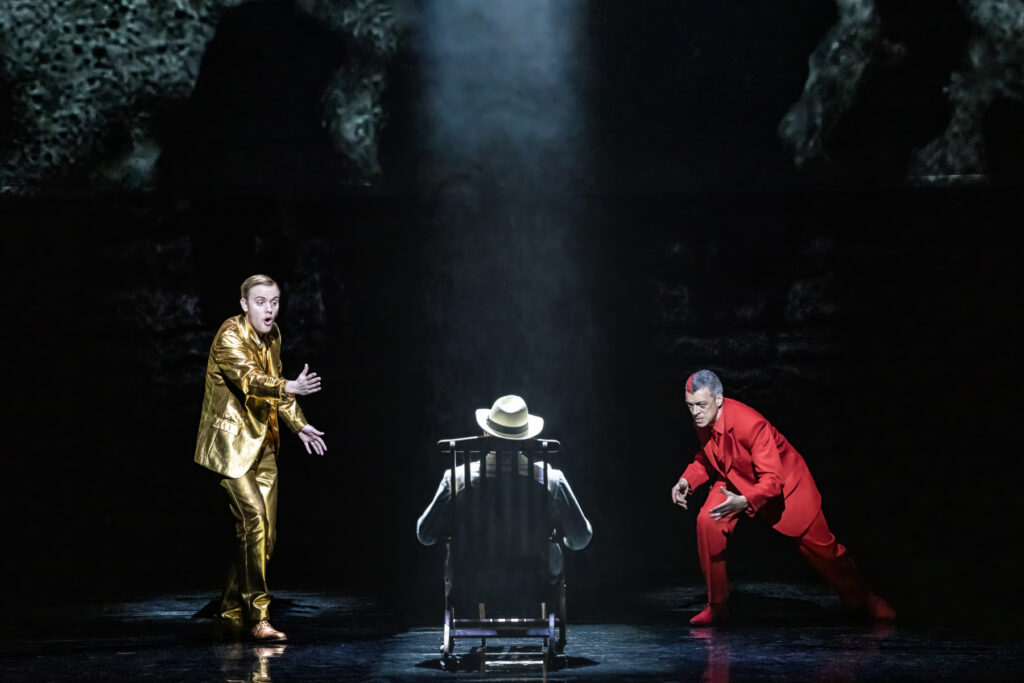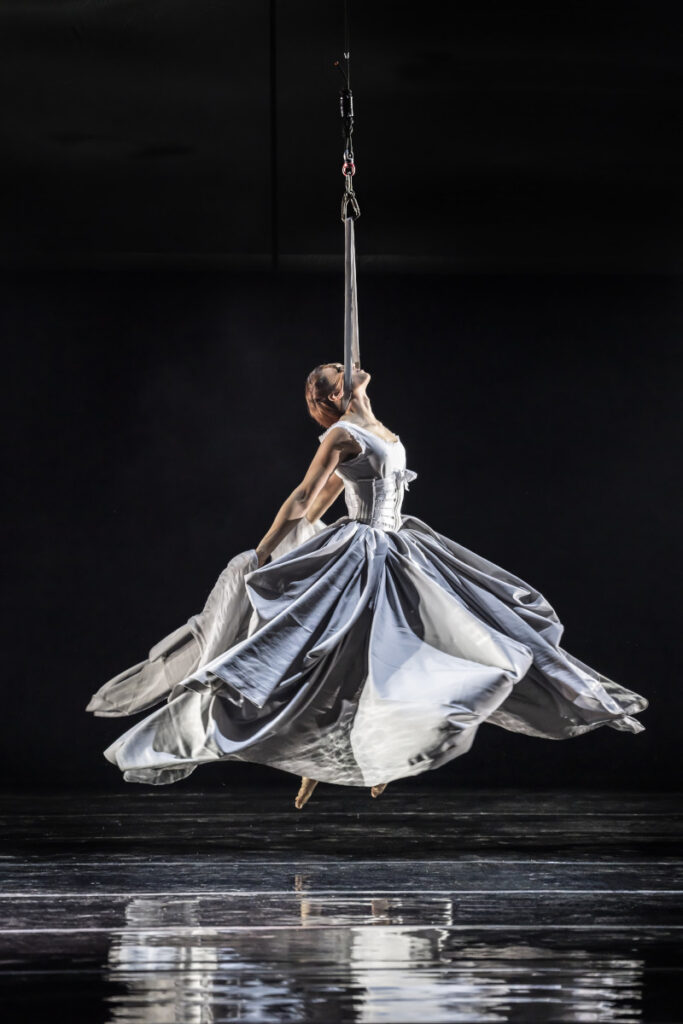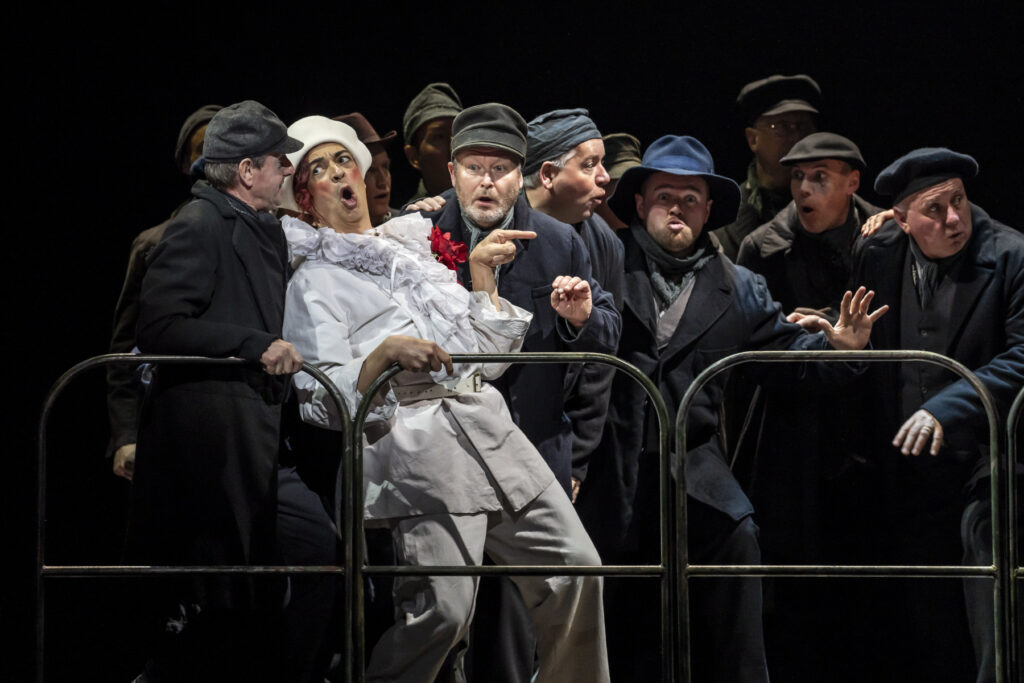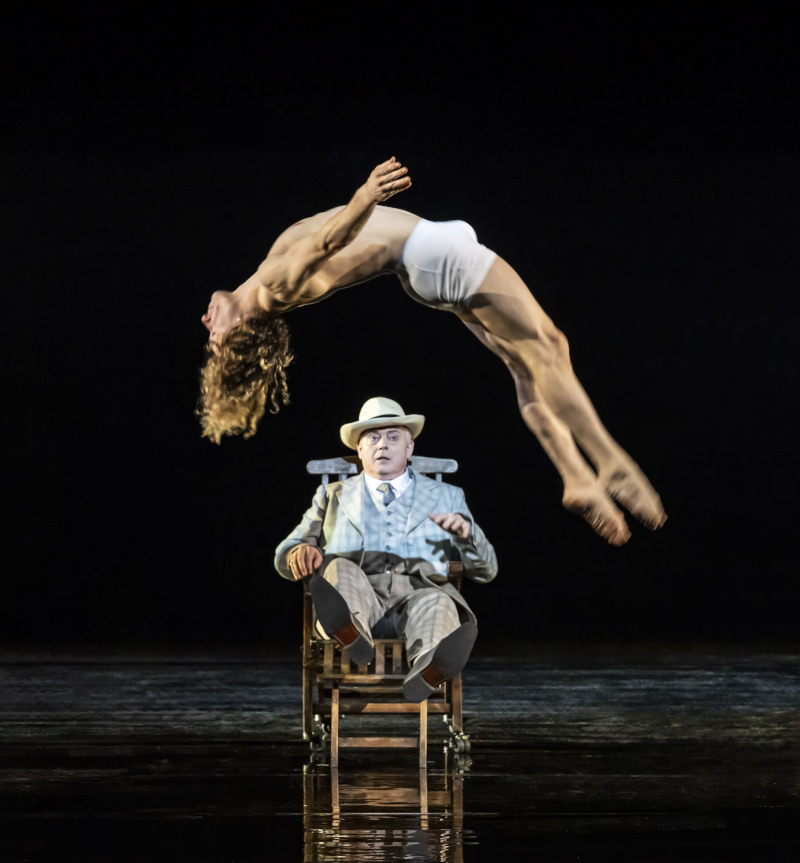Like the protagonist in Thomas Mann’s eponymous novella, Benjamin Britten’s failing health made him keenly aware of his own mortality as he embarked upon one of the most challenging projects of his career. Being the true artist that he was, Britten did not shy away from controversial subjects, despite any uncomfortable parallels with his own experiences or inclinations. Privately, he would have identified with the theme of a celebrated artist repressing forbidden desires and sublimating them in a frantic work schedule, resulting in ‘a youthfully ardent thirst for distant scenes’.

The greatest challenge facing anyone tackling this novella is the question of how to portray these intense yearnings, given the complete absence of dialogue between Gustav von Aschenbach and the object of his desire. In the 1971 film version, director Luchino Visconti used the giddy chromaticism in the Adagietto from Gustav Mahler’s Fifth Symphony to do the heavy lifting in this regard. Dirk Bogarde relates that at the first screening, one of the studio executives on being told the music had been written by Mahler, replied “Just great…I think we should sign him!”. Britten’s version, which remains more faithful than the film to the original text at the expense of dramatic impetus, draws on the exotic sound world of gamelan to conjure the ruffled waters of the Lagoon, which in turn acts as a cypher for Aschenbach’s inner turmoil.

In the original Aldeburgh production in 1973, Britten underscored the unattainability of Tadzio by incorporating him into a group of ballet dancers. For the Welsh National Opera production, director Olivia Fuchs has further emphasised the distance between Aschenbach and his muse by using acrobats from the NoFit State Circus. This daring innovation is a stroke of genius; the highwire virtuosity and expressive floor routines blend seamlessly with all the other elements to create a satisfying whole. Of course, Venice itself acts as a metaphor; the decay behind her glittery façade inviting comparison with the inexorable corruption of Aschenbach’s soul. Tadzio leaves him in a state of molecular agitation, effectively evoked by Sam Sharples’s black and white video projections of dappled turbulence. The projections work well in conjunction with Nicola Turner’s minimalist set design which at various times include a barber’s chair, a deck chair, a suitcase and a large potted plant hinting at the opulence of the Hotel des Bains. The elegant white costumes worn by the hotel guests contrast well with the black garb of the local Venetians.
Aschenbach cites Greek Mythology to lend a veneer of respectability to his urges, but Socrates warns that beauty leads to passion and passion to the abyss. In the principal role, Mark Le Brocq achieves just the right balance of vanity and vulnerability. Surtitles are provided, but his crystal-clear diction renders them superfluous. Roderick Williams’s multirole contribution is a tour de force. His preening performance as the Elderly Fop is a scene stealer, as is his comic turn as the licentious Leader of the Players. Elsewhere he strikes just the right tone in a variety of guises. Resplendent in a gold suit, Timothy Morgan as Apollo adds a suitably ethereal tone. The Chorus is in fine fettle throughout.

Britten poured a lifetime of compositional expertise into this opera. The battle between the Apollonian and Dionysiac sides of Aschenbach’s nature is illuminated by pitching major against minor tonalities, diatonic harmony against the twelve-tone series. Above this floats the pentatonic purity of Tadzio’s theme. All this is beautifully realised by the WNO orchestra under the outstanding direction of Leo Hussain. First among equals is the percussion section which plays with forensic precision.

If anything, this opera has become more relevant with the passing of time. The plague, which is a brooding presence throughout, resonates more than ever with our post-pandemic society. Aschenbach’s ultimate acquiescence with the hotel Barber’s suggestion that he should make himself look younger chimes with the pressures now placed upon us all by social media (photo filter anyone?). The theme of the individual versus society (previously explored in Peter Grimes) is also touched upon. The struggle to find meaning in life and the desire to break free from the shackles of job, mortgage and stultifying routine are still universal concerns.
John McDonald
Death in Venice
Music by Benjamin Britten
Libretto by Myfanwy Piper
Gustav von Aschenbach: Mark Le Brocq; The Traveller, Elderly Fop, Gondolier, Hotel Manager, Hotel Barber, Leader of the Players and the Voice of Dionysus: Roderick Williams; Voice of Apollo: Timothy Morgan; Tadzio: Antony César; Polish Mother: Diana Salles; Daughter 1: Vilhelmiina Sinervo; Daughter 2: Selma Hellman; Governess and Jaschiu: Riccardo Saggese; Hotel Porter: Peter van Hulle, English Clerk: Gareth Brynmor John; Director: Olivia Fuchs; Designer: Nicola Turner; Head of Costume: Siân Price; Lighting Designer: Robbie Butler; Video Designer: Sam Sharples; Circus Consultant: Tom Rack; Circus Designer and Director: Firenza Guidi; Orchestra and Chorus of Welsh National Opera and NoFit State; Conductor: Leo Hussain.
New Theatre Oxford, Tuesday 26 March 2024
Top Image: Mark le Brocq (Gustav von Aschenbach) and the cast of Death in Venice
All photos by Johan Persson courtesy of Welsh National Opera